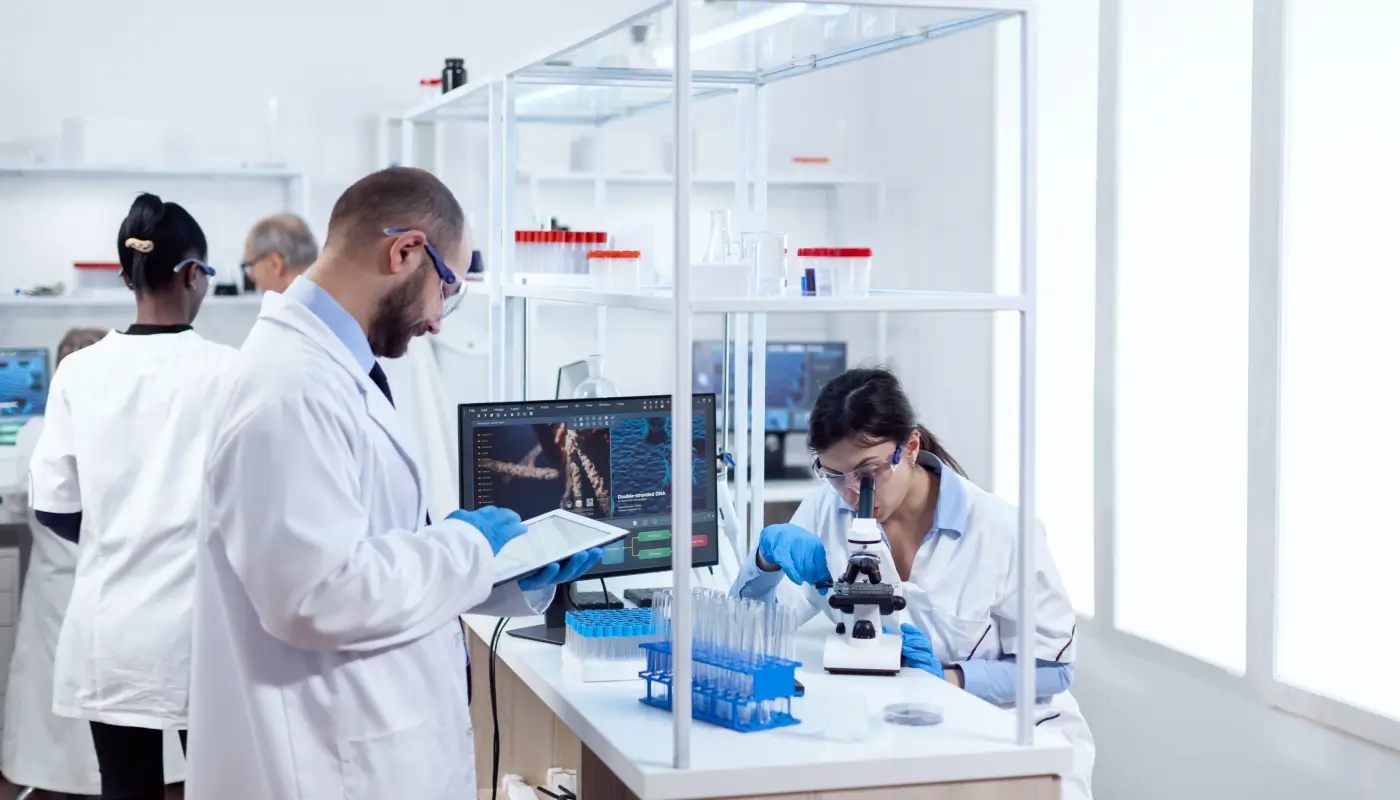
Clinical Trials (Phase I–IV) - Our Scientific & Research Expertise
At our center, we are committed to advancing gastrointestinal care through research. Our Phase I–IV clinical trials offer eligible patients early access to innovative therapies for Ulcerative Colitis (UC) and Crohn’s Disease (CD) – conditions that impact quality of life and often require long-term management. Whether you’re newly diagnosed or haven’t responded to current medications, a clinical trial could provide new options while contributing to medical advancements.
What Are Clinical Trials?
Clinical trials are research studies that evaluate the safety, effectiveness, and side effects of new medications or therapies. Trials are conducted in phases:
- Phase I – Safety and dosage
- Phase II – Effectiveness and side effects
- Phase III – Comparison with current standard treatments
- Phase IV – Post-marketing surveillance and long-term data
Current Focus Areas
We are actively enrolling patients for research in the following areas:
- Moderate to Severe Ulcerative Colitis
- Moderate to Severe Crohn’s Disease
- Biologic therapies (e.g., anti-TNF, JAK inhibitors, IL-12/23 blockers)
- Novel small molecules and monoclonal antibodies
- Drug comparisons for patients naive to targeted therapies
Each study is sponsored by leading pharmaceutical or biotech companies, including AbbVie, Roche-Genentech, and Mirador Therapeutics.
Benefits of Participation
- No-cost access to investigational treatment
- Thorough medical evaluations and diagnostics
- Regular monitoring by IBD specialists
- Travel support (if eligible)
- Contribution to future therapies
Who Can Participate?
Eligibility depends on each study. In general, you may qualify if:
- You are aged 18–80
- You have a confirmed diagnosis of Ulcerative Colitis or Crohn’s Disease
- You’ve had an inadequate response or intolerance to standard medications
- You are not currently on conflicting investigational drugs
- You do not have severe comorbidities or active infections
To check your eligibility, contact our clinical trial coordinator or use the form below.
Who Can Participate?
Eligibility depends on each study. In general, you may qualify if:
- You are aged 18–80
- You have a confirmed diagnosis of Ulcerative Colitis or Crohn’s Disease
- You’ve had an inadequate response or intolerance to standard medications
- You are not currently on conflicting investigational drugs
- You do not have severe comorbidities or active infections
To check your eligibility, contact our clinical trial coordinator or use the form below.
What to Expect
- Pre-Screening: Medical history review and initial eligibility check
- Screening Visit: Lab tests, endoscopy (if needed), and informed consent
- Trial Participation: Regular visits, medication administration, and progress monitoring
- Follow-Up: Post-treatment observation and care
Every participant receives personalized care throughout the trial under a dedicated medical team.
Why Choose Us?
- Internationally recognized IBD research site
- State-of-the-art endoscopy and lab facilities
- Experienced principal investigators and IBD specialists
- Strong partnerships with global sponsors and CROs
- Compassionate support and clear communication
Get in Touch With Us
Common Questions About Clinical Trials
- Treatment Trials: Test new treatments or drug combinations.
- Prevention Trials: Study ways to prevent disease.
- Diagnostic Trials: Improve testing methods.
- Screening Trials: Test ways to detect diseases.
- Quality of Life Trials: Focus on patient comfort during illness.
- Write down questions in advance
- Bring someone along
- Record the meeting if permitted
- Ask to take home the Informed Consent Form to review


